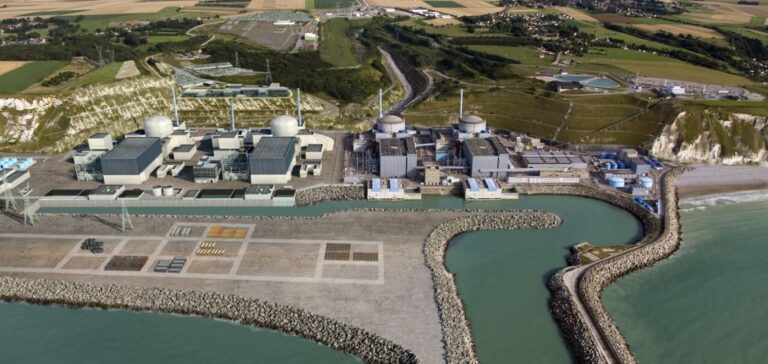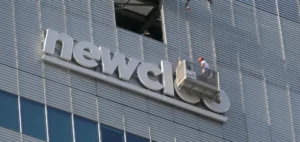The concrete used for the protective seawall of the future EPR2 nuclear power plant in Penly, Seine-Maritime, has come under scrutiny for its compliance. According to Mediapart and Reporterre, tests commissioned by Eiffage, responsible for constructing the structure, allegedly revealed that the aggregate composition did not meet regulatory criteria. However, these claims are disputed by EDF and Eiffage, who maintain that the concrete complies with current standards.
Compliance defended by Eiffage and EDF
Eiffage responded to the reports by stating that the concrete formulation planned for the seawall met the specifications of the contract awarded by EDF. The construction firm specified that the aggregates used, sourced from the Graves de Mer in Dieppe, underwent multiple tests to ensure compliance with technical requirements. Independent laboratory inspections reportedly confirmed the validity of the selected composition on 5 March 2025. EDF, for its part, stated that the development phase of the concrete formulation and the control of its aggregates were completed before the production of the seawall blocks began.
Requests from the Nuclear Safety Authority
The Nuclear Safety and Radiation Protection Authority (ASNR), which inspected the site on 27 February, issued seven requests to EDF regarding the quality of the concrete used for the grooved cubic blocks (BCR), a key component of the seawall. ASNR requested further details on the quality requirements applied and justifications on risk management concerning material degradation. The authority emphasised that this seawall is part of the important elements for nuclear safety protection (EIP).
EDF stated that the quality of the concrete used for the BCRs complies with technical specifications and that the on-site production of concrete began on 4 March 2025. The energy company also clarified that the BCR concrete differs from that used in nuclear buildings, which is subject to specific classifications adapted to safety concerns.
A project within the nuclear revival strategy
The preparatory work for the EPR2 in Penly is progressing according to schedule, EDF confirmed. This reactor is part of the nuclear revival strategy announced in 2022 by Emmanuel Macron, which includes the construction of six EPR2 reactors in France. In addition to Penly, two reactors are planned in Gravelines, in the north, and two more in Bugey, along the Rhône. The first EPR2 is expected to enter service between 2035 and 2037.





















